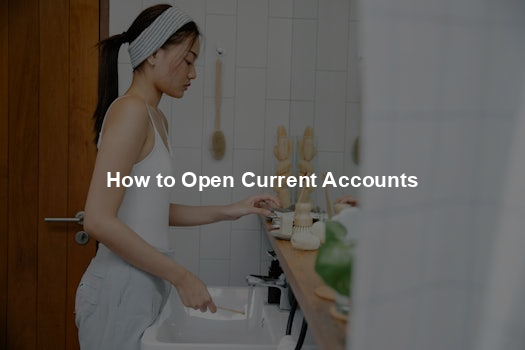Opening a current or savings account at a reputable financial institution offers numerous advantages that will streamline and protect your personal financial management. If this is something you have yet to do, here is your checklist of steps you should follow.
Current accounts are an indispensable tool for managing your money effectively. Explore all available solutions on the market to select one that best meets your requirements.
1. Consult with a Financial Advisor
A current account is an association established to assist with opening new accounting or credit accounts. Usually, opening one requires identification with photo, verification of address and identification numbers (such as SSN). You may also require driving license, legal documents and/or other paperwork.
Correspondent accounts provide you with additional services such as credit cards, checks, and mobile bank access. The additional cost associated with using them largely depend on their monthly tariff rate.
Traditional banks frequently charge monthly or annual account opening fees and account keeping requirements in order to open accounts with them.
2. Contact Your Bank or Credit Union
An everyday account, also known as a checking or savings account, can be an indispensable resource. Not only can it allow for easy and swift access to funds, but it may also unlock other services like credit cards or social insurance policies. Before opening one though, certain considerations need to be kept in mind before opening an account.
Always speak with a financial advisor first to gain more knowledge on the advantages of opening a bank account. They can assist in helping determine if opening one is suitable and recommend suitable options, as well as assist with application procedures and initial deposits required by most banks (this deposit usually ranges between $25 to $100, depending on which bank it’s opening with). How Can You Open A Current Account?
3. Complete the Application
An account with a bank allows its clients to deposit money with it, using automatic teller machines (ATM), online banking platforms such as BankofAmerica or cheques; electronic funds transfers and other methods as available. Your representative will understand your financial and banking circumstances and suggest solutions tailored specifically for your needs.
An ideal place to begin managing your finances is with banks. While some Americans fear banks, there are other companies and cooperatives of credit that provide similar services – each has different advantages that may help save time and effort by managing funds properly. Bank accounts provide one such avenue; but other alternatives exist such as companies and cooperatives that offer similar products; each may present various advantages that should be evaluated when choosing between these options. It is highly likely you already have or need one of these accounts; managing it appropriately will save both time and ease of living! Know this already?
4. Sign the Agreement
Current accounts are an essential financial product that credit institutions must offer their customers to realize the rewards from them. Benefits could include reduced commission rates and interest rates that are lower. Furthermore, with BBVA Net Cash you can pay your suppliers directly while receiving national/international transfers as well as pension plans/investment funds services.
Financial entities must inform account holders free of charge about all movements made to their current accounts by financial entities at all times and as they occur, including dates, descriptions and amounts associated with each operation. They must also ensure their inheritors can easily store and reproduce this information without change.
Individuals from the Millennium generation are less trusting of banks than in the past and believe they don’t require a banking account for managing their money. But having one can give us a clearer view of the market; having an account at Regions gives an excellent opportunity for earning extra income, saving interest costs and receiving preferential services and benefits.
5. Sign the Contract
Current accounts are an essential tool in managing personal finances effectively. They offer you a secure place to store your cash and enable payments using both credit and debit cards – these services often vary among banks so we recommend searching for one with suitable services and rates.
A current account is an account where funds can be deposited to. They act like real money, yet can be accessed via ATMs, ventanillas, cheques and electronic transfers – making it ideal for regular payments at home and payments abroad.
Companies may use savings accounts as an effective way of setting aside funds for investments or future plans. Furthermore, daily payments and payroll deposits could also be made using this account; sometimes even using it as a form of loans that the user must amortize over 15-30 days – something a bank could never allow them to do directly.
